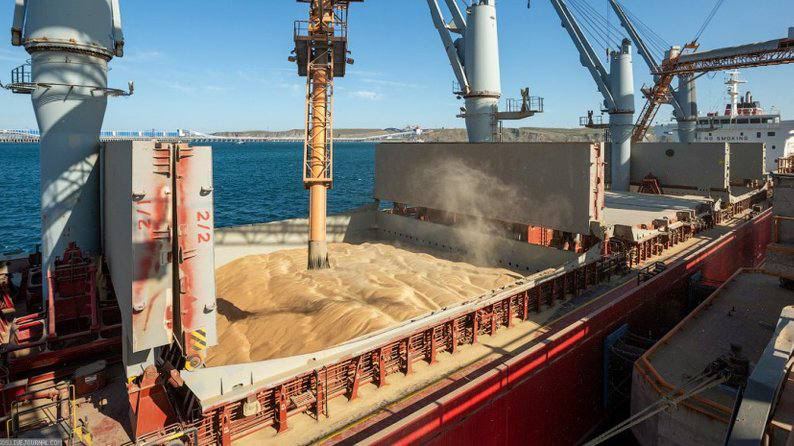Will Trump mean more American expats coming to the UK?
As leaders sit on the edge of their seats, bracing for the impact of Trump’s tariffs, they may find an offset – albeit a slight one – in the form of American expats joining their economies, says Bill Sedat Frater Reflecting on the US elections, it’s hard to ignore the role tax policy played in [...]


As leaders sit on the edge of their seats, bracing for the impact of Trump’s tariffs, they may find an offset – albeit a slight one – in the form of American expats joining their economies, says Bill Sedat Frater
Reflecting on the US elections, it’s hard to ignore the role tax policy played in the outcome — performances aside, of course. Trump’s vehemently anti-tax stance was no secret, but it does leave us wondering: what could this mean for the future of America’s relationships on the global stage?
Interestingly, the president-elect took aim at the double taxation of overseas Americans during his campaign, and he’s not wrong.
Expats are tangled in a horribly complex tax system that keeps them liable to US taxes even while living and working abroad. While it’s not so much a double tax, the endless bureaucracy and soul-crushing paperwork is enough of a repellent.
With around 5m Americans already working abroad, the immediate impact might not be so dramatic. However, a survey by Arton Capital revealed that 53 per cent of American millionaires were more likely to consider leaving the US after the election, regardless of the result. Such a policy would almost certainly spur an American exodus — though the scale of it remains to be seen.
As leaders sit on the edge of their seats, bracing for the impact of Trump’s tariffs, they may find an offset – albeit a slight one – in the form of American expats joining their economies. This appears to be the consolation they were not seeking, but might end up receiving, nonetheless.
There are indeed many benefits to gain from expatriates. They bring skills, contribute to taxes and fill jobs. Amid skills shortages, they not only diversify the local talent pool but also bring entrepreneurial abilities, new ideas, and much needed capital injections, all of which have multiplier effects. Real estate markets will thrive, construction and property management will experience revitalisation, new tech start-ups may emerge, and the government’s tax coffers stand to benefit.
Wealth migration is a growing trend
This is already evident in the growing trend of wealth migration, with more people from the United States increasingly moving to Asia, Europe, and the Middle East. It seems that Americans are now increasingly pursuing the American Dream, just not within America.
As a business owner in the restaurant and property industry, this is music to my ears. This type of migration brings increased investment, job creation, and a regeneration of local economies, helping to reverse the recent slump, particularly for independent restaurants, with six closures expected each week in 2024.
London property could also contribute by potentially offsetting market decline caused by the non-dom exit. As expats and wealth migration begin to reshape these markets, we will see the industry and others like it adapt to the influx of people driven by shifting global policies.
However, the primary impact of easing this tax burden for US expats will be an expansion of the country’s soft power. In a world where China’s influence is rising and the power of the western hemisphere is slowly dwindling, this tax policy could serve as a silver lining for US soft power.
Expats play a crucial role in promoting their home countries’ culture through people-to-people diplomacy, helping to spread their values and ideals across borders. The trust built through these relationships becomes foundational in strengthening diplomatic ties, which in turn can facilitate trade deals, improve foreign policy cooperation and, hopefully for the UK, lead to milder tariffs.
In fact, to all the anxious Democrats planning to flee the States, you might just find yourselves benefiting from this tax policy. Some of you have already set your sights on Scotland as the perfect getaway; though, I hear Trump International Scotland is particularly enchanting this time of next year.
Golf and expats aside, it’s no secret that many are eagerly awaiting the outcomes of Donald Trump’s fiscal policies. Despite the concerns surrounding these initiatives, it will be intriguing to see how American soft power policy unfolds on the global stage.
Undoubtedly, Trump will attempt to seize every opportunity to restore America’s position as the superpower its rivals once did not come close to challenging.
How the UK responds to these moves will be crucial in shaping its economic future. These policies could intensify the debate over whether the UK aligns more closely with the diverging economic approaches of the EU or the US.
It seems reasonable to expect that Trump’s tax cuts could attract new capital to the UK and will not only influence broader economic policies but also provide a boost to key sectors such as the London property market. Such new capital may help clarify the path forward for the UK, though much will depend on which relationship this Labour Government chooses to prioritise.
Bill Sedat Frater is an entrepreneur



